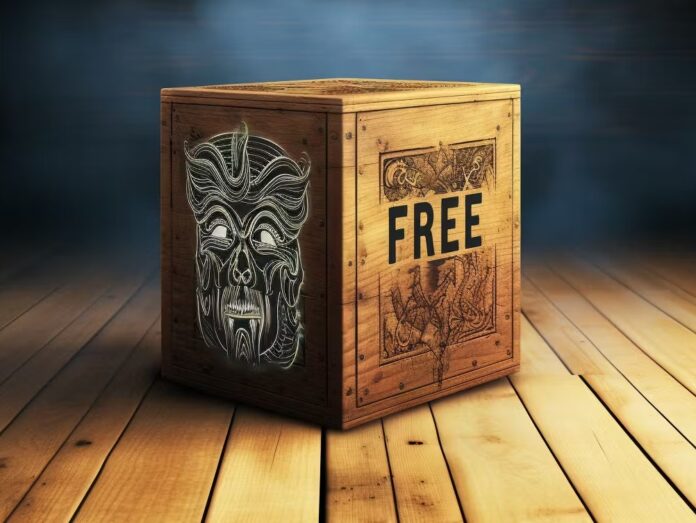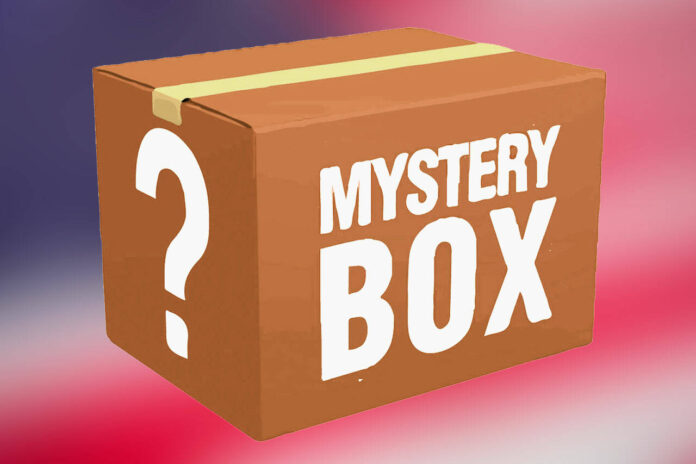
Mystery boxes have become the modern-day Pandora’s Box, only often with less doom and more joy (or so we hope!). They’ve emerged as a prominent trend, captivating consumers with the allure of hidden treasures. In our age of online shopping and instant gratification, these boxes offer a refreshing twist, harking back to the childlike thrill of surprises. But as their popularity soars, a cloud of contention hangs overhead. This blog seeks to unravel the secrets of these gifts, shedding light on their fairness, origins, and their very essence. Is it all fun and games, or is there more to it? Let’s find out.
What Are Mystery Boxes?
At its core, a mystery box is a product defined by anticipation. Imagine buying a package, its contents veiled, only to be revealed once it’s in your hands. The concept has deep historical roots. There were times when novelty shops or county fairs presented ‘grab bags’ or ‘surprise parcels’, precursors to today’s mystery packages. With the internet age, they’ve metamorphosed into a global phenomenon. From niche corners of eBay to dominant giants like Amazon, they’re everywhere. But as they’ve grown, so have the debates about their true value and intent.
Different Types
The realm of mystery boxes is as diverse as one’s imagination. Digital mystery boxes have especially taken the gaming world by storm. They can unlock special characters, outfits, or other virtual goodies that enhance user experience. Physical mystery gifts, the traditional type, span a wide spectrum. From artisanal soaps to limited-edition sneakers, the contents can vary wildly. Then there’s the subscription-based variant. Brands like Loot Crate or Ipsy have cultivated a devout following, delivering themed surprises to doorsteps every month, turning routine into excitement.

Their Appeal
The very essence of a mystery gift plays on human psychology. We’re creatures driven by curiosity. The lure of the unknown, the potential of owning something exclusive, or even the simple joy of a surprise can be irresistible. Remember the joyous frenzy of opening gifts during holidays or birthdays? Mystery boxes tap into that very emotion. Add to it the value proposition; often these items promise items whose collective worth surpasses the price of the box. The combination of potential value and the thrill of the unknown crafts a compelling case for many to dive into the world of mystery boxes. If you see the appeal you can read more about free mystery boxes.
The Controversy Surrounding Mystery Boxes
While mystery boxes often bring joy and surprise, they’re not without their dark side. Critics argue that they blur the lines between shopping and gambling. Without a clear indication of what’s inside, buyers take a chance, sometimes paying large sums for items of lesser value. Moreover, anticipation and repeated purchasing can foster addictive behaviors. Ethical concerns arise, especially when targeting younger audiences. Some of them promise luxury items but deliver knock-offs, misleading and disappointing eager buyers. With the rising popularity of mystery boxes, it’s crucial to address these challenges head-on.
Are Mystery Boxes Fair?
The question of fairness hinges on transparency. Do mystery boxes consistently offer value that matches or exceeds their cost? Unfortunately, the answer varies. While some boxes guarantee items worth above the purchase price, others are vague about their contents’ value. The odds of striking gold and getting a high-value item versus ending up with something less desirable can be akin to a lottery. Some sellers maintain transparency, providing odds or at least categories of potential items, but others remain opaque, leaving buyers in uncertain waters. Fairness, then, becomes a matter of research, trust, and sometimes, sheer luck.

Regulation and Consumer Protection
As with many industries facing ethical dilemmas, regulation is critical. Some countries have begun scrutinizing the mystery box market, especially the digital ones in gaming that resemble loot packages. Consumer protection measures are being considered, like mandatory disclosures of odds or return policies. Potential improvements could include standardized value categorizations or certifications for trusted sellers. While the landscape is still evolving, it’s evident that as mystery boxes gain traction, they’ll come under more stringent oversight to ensure consumer rights are protected.
The Psychology Behind the Process
Why do we get entangled in the web of mystery boxes? The answers lie deep within our psyche. Anticipation releases dopamine, a feel-good chemical. The suspense of what lies within the box keeps us coming back for more. Additionally, the FOMO (fear of missing out) phenomenon plays a pivotal role. In a world brimming with social media posts showcasing the best of mystery box unveilings, no one wants to feel left out. But while these psychological levers make mystery boxes enticing, it’s essential to recognize them and ensure they don’t lead to unhealthy behaviors.
Success Stories and Horror Stories
For every gleeful unboxing video shared on TikTok or YouTube, showing coveted items snagged at a fraction of the cost, there’s a counterpart filled with disappointment. Tales of elation include buyers unearthing rare collectibles or designer goods, often leading others to try their luck. Conversely, horror stories abound of boxes filled with useless knick-knacks or counterfeit items. It’s a spectrum of experiences, and while it’s tempting to chase success, one must approach mystery boxes with measured expectations.

Tips for Engaging with Mystery Boxes Responsibly
Navigating the world of mystery boxes requires a blend of excitement and caution. Set a budget to ensure you’re not overspending. Research sellers for reputation and reviews. Understand return policies, if they exist. And most importantly, while the thrill of the chase is fun, recognize the signs if it becomes more than just a harmless hobby. Remember, the allure of mystery boxes is in the fun of the surprise, not in chasing elusive, often exaggerated, windfalls.
Alternatives to Mystery Boxes
If the element of surprise is what you’re after without the uncertainty of value, there are alternatives. Thrift shopping can be a treasure hunt, offering unique finds at bargain prices. Trading items with friends or joining community swap meets can satiate the desire for novelty. Local markets or craft fairs can introduce you to unique, handcrafted items, ensuring both value and surprise.
Conclusion
Mystery boxes are an enigma, blending commerce, psychology, and sheer luck. They promise surprise, excitement, and value. But like all things, they come with their share of pros and cons. It’s a world where delight and disappointment walk hand in hand. As consumers, the onus lies on us to tread wisely, enjoy the thrill, but also safeguard our interests. After all, mysteries are fun to unravel, but not at the cost of reason or responsibility.











